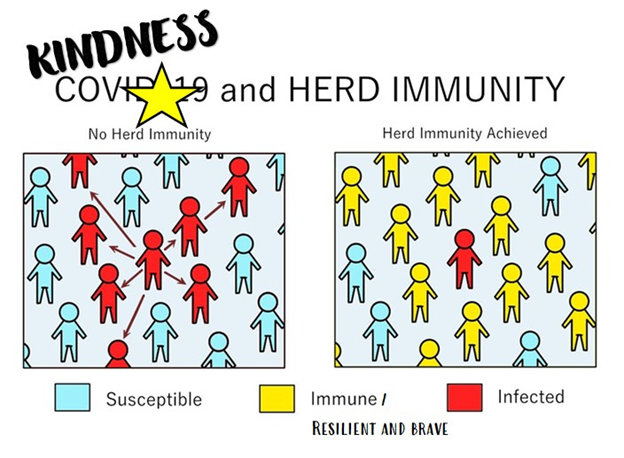We know we have a problem with bullying in health care workforces.
It doesn’t matter what part of the world you’re from, workplace bullying remains one of the biggest challenges facing our global healthcare culture.
It’s been described as “the most destructive phenomenon plaguing medical culture” [1] posing risks not only to ourselves and our colleagues, but to our patients.
A quick glance at studies done in recent years puts the percentage of health professionals bullied in the previous six months at between 18-38%. This figure is even higher for those having witnessed workplace bullying second-hand [1-3].
A problem with trying to measure workplace bullying in an organisational culture is how to define and capture it.
In a large systematic review recently published [4], less than a third of victims (28.9% of victims in 25 studies) reported their experience of being bullied and more than half (57.5%) of those who did, did not perceive a positive outcome. This under-reporting of bullying includes reasons associated with stigma, job security, not wanting to “rock the boat” or cause trouble.
So, we probably do not comprehend the full extent of the problem despite the many years of research dedicated to the cause.
More insipid and difficult to measure, but even more pervasive again, is what is termed workplace incivility. Easy to detect when you are the target, but harder to quantify to others, workplace incivility is defined as “low-intensity, deviant behaviour with ambiguous intent to harm the target, in violation of workplace norms for mutual respect.
Uncivil behaviours are uncharacteristically rude and discourteous, displaying a lack of regard for others”[5]. This might include using derogatory terms and rude phrases, using a tone of voice that conveys disrespect for the target, eye-rolling, undermining the target in front of others, and not showing manners.
Seems like small-fry stuff right? No one is throwing punches, tripping people up in corridors, giving them wedgies or stealing their lunches.
Except that this behaviour is something every one of us has experienced or witnessed during our working lives. Not just once or twice in our working careers, but every week.
According to Porath and Pearson (2015), who surveyed thousands of professionals about workplace incivility, 98% of us have experienced it and 50% of us experience it weekly.
The effect of team incivility
So why does it matter?
Multiple studies have shown that in 30-60% of situations where patients have been unnecessarily harmed or killed in hospitals, team incivility is one of the main causal factors [6-8].
Pervasive incivility kills individual performance – people experience decreased functioning in cognitive abilities such as working memory, decision making, and task planning and execution.
Pervasive incivility kills team performance – staff stop backing each other up. They stop showing willingness to help each other out, to share workloads, to share feedback, collaborate and coordinate. Pervasive incivility kills organisational performance. Staff sense of commitment and loyalty to the organisation decreases, productivity nosedives, as do job satisfaction and job retention rates [6].
Even more disheartening is how infectious incivility is. The instigator does not just infect the target. Witnesses to workplace incivility are also affected with the same individual, team, and organisational level deficits in behaviour outlined above. Worse, both the target and witnesses become more likely to go on and infect others with acts of incivility following the original event.
And before we know it, we have a pandemic of incivility on our hands. If instigators of incivility are left unchecked, they are likely to demonstrate an escalation of behaviours into the realm of serious bullying [5, 9].
So, what can we do?
Clearly, the time is nigh for the development of a kindness vaccination for this pandemic.

In contrast to workplace incivility, workplace civility can be defined as “treating others with dignity, acting with regards to others’ feelings, and preserving the social norms for mutual respect”[5]. This definition could easily be applied as a definition of or precursor to workplace kindness too.
As with any good vaccination rollout, we need to start with our most at-risk populations. As the most vulnerable and at risk of workplace incivility, we as health professionals need to find the resilience and courage to flip the script on uncivil behaviour, when it happens to us and when we witness it. We need herd immunity!
But how do we rise up against a bully without compromising our own dedication to practising civility and kindness to others? Meeting force with force would be hypocritical, but also conflict history tells us this does not work. Someone yelling at you “Hey! You are wasting my time! Don’t be so useless, use your brains and go and look it up!” is hardly going to be neutralised with “You’re the stupid one, you dumb loser!”.
An eye for an eye makes the whole world blind, and all that. But what if we took a deep breath, and responded with “I’m not stupid, I’m not useless, I’m asking you because I admire your knowledge and experience as someone I can learn from”. Where would the antagonist go from there?
Perhaps if we can suppress our instinct to lose an eye in retaliation, and respond to incivility with warmth and respect (which is sometimes called ‘non-complementary’ behaviour), we can short-circuit the arc of negativity before it escalates.
And yes, it takes a big person to demonstrate that level of warmth and kindness back to someone who has just done their utmost to shame us. But as Ralph Marston would say, being positive in a negative situation is not a sign of weakness. It’s a sign of leadership. We might lose the battle but we most certainly win the war.
Perhaps it’s taking steps like actively asserting group conduct rules in team meetings that will make the difference. Ask people before the meeting commences to commit to fostering team spirit, show courteous and respectful behaviour to others in the team, or refrain from speaking.
Maybe all it takes is for one person to draw a line within the team, and others will find the strength to stand a little straighter and show resistance to previously accepted levels of incivility from others. And in this way, those of us in the team who are stronger and more resilient against the virus of incivility can help protect those in our team who are more vulnerable or susceptible, just like with herd immunity.
And by stopping the spread of incivility, we can start a new contagion of intelligent kindness that benefits all.
About the blog author

My name is Nicki Macklin. I’m a PhD candidate at the University of Auckland in New Zealand.
I’ve just started my thesis, “How might intelligent kindness support healthcare systems, and the people within them, to flourish?”. Intelligent kindness is kindness that can be used with purpose to benefit patients, staff, and existing service delivery models. It also acknowledges that organisational, managerial and clinical systems can enable kindness to flourish, or not, which is something I am keen to explore in my research.
Resources:
- Jamieson, J., et al., Bullying and harassment of trainees: an unspoken emergency? Emergency Medicine Australasia, 2015. 27(5): p. 464-467.
- Chambers, C.N., et al., ‘It feels like being trapped in an abusive relationship’: bullying prevalence and consequences in the New Zealand senior medical workforce: a cross-sectional study. BMJ open, 2018. 8(3): p. e020158.
- Bentley, T., et al., Understanding stress and bullying in New Zealand workplaces: Final report to OH&S steering committee. Wellington, New Zealand, 2009.
- Averbuch, T., Y. Eliya, and H.G.C. Van Spall, Systematic review of academic bullying in medical settings: dynamics and consequences. BMJ Open, 2021. 11(7): p. e043256.
- Andersson, L.M. and C.M. Pearson, Tit for tat? The spiraling effect of incivility in the workplace. Academy of management review, 1999. 24(3): p. 452-471.
- Riskin, A., et al., Discrete Incivility Events and Team Performance: A Cognitive Perspective on a Pervasive Human Resource (HR) Issue, in Research in Personnel and Human Resources Management. 2020, Emerald Publishing Limited.
- Riskin, A., et al., The impact of rudeness on medical team performance: a randomized trial. Pediatrics, 2015. 136(3): p. 487-495.
- Neubert, M.J., E.M. Hunter, and R.C. Tolentino, Modeling Character: Servant Leaders, Incivility and Patient Outcomes. Journal of Business Ethics, 2021: p. 1-18.
- Pearson, C.M. and C.L. Porath, On the nature, consequences and remedies of workplace incivility: No time for “nice”? Think again. Academy of Management Perspectives, 2005. 19(1): p. 7-18.
SHARE THE BLOG:


